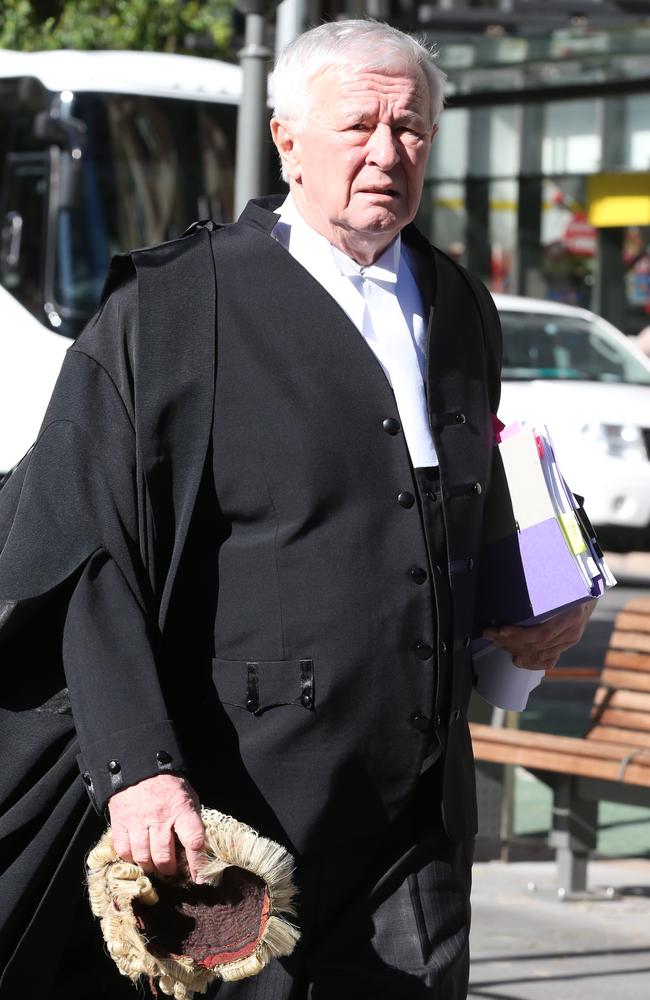Opinion: Appeal court finds gross failure in sex abuse investigation
In setting aside guilty verdicts in a sex crimes case, the Court of Appeal has made some searing comments about faulty police investigations, writes Des Houghton.

Opinion
Don't miss out on the headlines from Opinion. Followed categories will be added to My News.
How often do police, including those assigned to the Crime and Corruption Commission, cherry-pick evidence to help gain convictions while downplaying or omitting other evidence that may cast doubt on the guilt of a suspect?
It’s a vexing question flying around police and legal circles this week, after the Queensland Court of Appeal found “a gross investigative failure” by police in an alleged sex crimes case.
Des Houghton: University of Qld a propaganda tool of Green Left
Opinion: Euthanasia push an election risk for Qld Labor
Opinion: Labor’s highly paid propaganda arm hides the truth
Court of Appeal president Walter Sofronoff, sitting with fellow Supreme Court judges Debra Mullins and Peter Davis, set aside guilty verdicts against Kenneth Ralph Ernst and ordered a retrial.
Along the way they made some searing comments about faulty police investigations, and quoted from the police rule book.
Ernst had already served 11 months of a three-year sentence after being found guilty of sexually abusing a teenage girl in the 1990s.
Sofronoff, Mullins and Davis agreed with Brisbane barrister Tony Glynn QC that there had been a miscarriage of justice in the Ernst case, because an investigating officer did not disclose to the prosecutor information given to police by a friend of the alleged victim.
That information would have weakened the prosecution case and would have been passed on by the prosecutor to the defence.
That witness, described only as Ms V, became friends with the alleged victim in 1995 at the University of Southern Queensland where they were students.

Ms V said the alleged victim described her relationship with Ernst as an affair.
The court heard the complainant had admitted to making false allegations of a sexual nature in the past.
Her friend also gave evidence about the complainant’s “propensity to lie”.
“None of this information was disclosed to the defence pursuant to the prosecution’s duty of disclosure,” the judges said.
“Mr Glynn QC submits that this breach has occasioned a miscarriage of justice.
“That submission must be accepted.
“Courts, including the High Court, have repeatedly emphasised that a prosecuting authority’s duty of disclosure of relevant information and evidence is not just a protection against miscarriages of justice.
“Its fulfilment is a presupposition of a fair trial.”
Prosecutors could only fulfil their duty if they had all the facts, the judges said.
They made no adverse comments about the officers of the Director of Public Prosecutions.

“Like the appellant’s own legal representatives, they too did not know about this evidence,” they said.
The judges said the administration of criminal justice depended heavily upon the work of police in gathering evidence.
“Judges and juries depend utterly upon the integrity of that process,” they said.
“To a great degree, that integrity depends upon the assumption that police investigators have been objective and have attempted to uncover all relevant evidence that can reasonably be assembled.”
An “utterly objective” police investigation was necessary.
The conduct expected of police was outlined in the Police Operations Procedures Manual: “When conducting investigations, officers are to remain objective and impartial and consider their initial appreciation of an occurrence, based on the preliminary information provided by complainants, witnesses or informants, may differ to what has occurred.”
The judges said the police officer in the Ernst matter had only been interested in whether Ms V “might be able to give evidence to strengthen the credit of the complainant”.
“He was uninterested in learning that there may be issues about the reliability of the complainant and so he ignored, or did not hear, what Ms V had to say,” they said.
“He made some desultory, sparse and useless notes of his conversation with her but failed to record any of the highly important things that Ms V was earnestly attempting to convey to him.
“As a result of this gross investigative failure there has to be a retrial.”
They added: “The cost of the first trial has been wasted. The effort made by the witnesses, jurors and others at that trial has also been wasted.
“The complainant will have to undergo the ordeal of giving evidence again.’’
The Appeal Court has drawn a line in the sand. Police will now cross it at their peril.
Des Houghton is a media consultant and a former editor of The Courier-Mail and Sunday Mail

